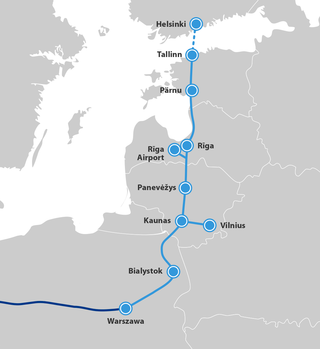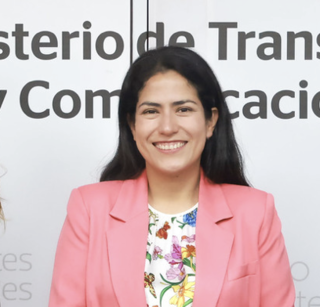Politics in Estonia takes place in a framework of a parliamentary representative democratic republic, whereby the Prime Minister of Estonia is the head of government, and of a multi-party system. Legislative power is vested in the Estonian parliament. Executive power is exercised by the government, which is led by the prime minister. The judiciary is independent of the executive and the legislature. Estonia is a member of the United Nations, the European Union, and NATO.

Juhan Parts is an Estonian politician who was Prime Minister of Estonia from 2003 to 2005 and Minister of Economic Affairs and Communications from 2007 to 2014. Juhan Parts is a member of Isamaa party.

The Bank of Estonia is the central bank of Estonia, established in 1919 with operations suspended between 1940 and 1990. It has been a member of the Eurosystem organisation of euro area central banks, since Estonia adopted the euro on 1 January 2011. The Bank of Estonia also belongs to the European System of Central Banks. From 1992 to 2010, the Bank of Estonia was responsible for the national currency, the Estonian kroon.

The history of Estonia from 1920 to 1939 spanned the interwar period from the end of the Estonian War of Independence until the outbreak of World War II. It covers the years of parliamentary democracy, the Great Depression and the period of authoritarian rule.
Youth mainstreaming is a public policy concept. The Commonwealth of Nations describes it in this context:
National youth development is often the sole responsibility of the government ministry or department where the youth portfolio lies, whereas youth issues should be mainstreamed across various sectors and line ministries such as health, finance, economic development, housing, justice, foreign affairs, education, and agriculture.

Rail Baltica is a greenfield rail transport infrastructure project underway, with a goal to integrate the Baltic states in the European rail network. Its purpose is to provide passenger and freight service between participating countries and improve rail connections between Central and Northern Europe, specifically the area southeast of the Baltic Sea. Furthermore, it is intended to be a catalyst for building the economic corridor in Northeastern Europe. The project envisages a continuous rail link from Tallinn (Estonia) to Warsaw (Poland), consisting of links via Riga (Latvia), Kaunas, and Vilnius (Lithuania). Its total length in the Baltic States is 870 kilometres (540 mi), with 213 kilometres (132 mi) in Estonia, 265 kilometres (165 mi) in Latvia, and 392 kilometres (244 mi) in Lithuania. Rail Baltica is one of the priority projects of the European Union (EU). It is part of the North Sea–Baltic Corridor of the Trans-European Transport Networks (TEN-T).

The Helsinki–Tallinn Tunnel is a proposed undersea tunnel that would span the Gulf of Finland and connect the Finnish and Estonian capitals by train. The tunnel's length would depend upon the route taken: the shortest distance across would have a submarine length of 80 kilometres (50 mi), which would make it longer than the current longest railway tunnel in the world, the 57 km Gotthard Base Tunnel. It has been estimated that the tunnel, if constructed, will cost €9–13 billion. It may open in the 2030s. The European Union has approved €3.1 million in funding for feasibility studies.

The Ministry of Foreign Affairs of the Republic of Lithuania is a governmental body of the Republic of Lithuania that shapes the national policy, and organises, coordinates, and controls its enforcement in the following areas: foreign affairs and security policy: international relations, economic security, foreign trade, protection of the rights and interests of the Republic of Lithuania and its persons and entities abroad; coordination of European Union membership; representing the Republic of Lithuania abroad diplomatic and consular relations, diplomatic service, Lithuanian national and diplomatic protocol, international relations; the policy of cooperation of the Republic of Lithuania; strengthening of expat connections with Lithuania.

The Estonian Defence Forces is the unified military force of the Republic of Estonia. The Estonian Defence Forces consists of the Estonian Land Forces, the Estonian Navy, the Estonian Air Force, and the paramilitary Estonian Defence League. The national defence policy aims to guarantee the preservation of the independence and sovereignty of the state, the integrity of its land area, territorial waters, airspace and its constitutional order. Its main goals remain the development and maintenance of a credible capability to defend the nation's vital interests and development of the defence forces in a way that ensures their interoperability with the armed forces of NATO and European Union member states to participate in the full range of missions for these military alliances.
The Federal Ministry of Budget and Economic Planning is one of the Federal Ministries of Nigeria.
The Communications Authority of Kenya (CA) is the regulatory authority for the ICT industry in Kenya with responsibilities in telecommunications, e-commerce, broadcasting and postal/courier services. The CA is also responsible for managing the country's numbering and frequency spectrum resources, administering the Universal Service Fund (USF) as well as safeguarding the interests of users of ICT services.
All European countries show eGovernment initiatives, mainly related to the improvement of governance at the national level. Significant eGovernment activities also take place at the European Commission level as well. There is an extensive list of eGovernment Fact Sheets maintained by the European Commission.

The Ministry of Foreign Affairs of the Republic of Indonesia or commonly known by its abbreviation Kemlu, is an Indonesian government ministry responsible for the country's foreign politics and diplomacy. The ministry was formerly known as the Department of Foreign Affairs until 2008 when the nomenclature changed with the enactment of the 2008 State Ministry Act.

Ministry of Transport and Communications is a government institution in the Republic of Lithuania which coordinates the work of road, rail, air, water, transport, postal and electronic communications sector and implements the strategy and politics of state government.

The Federal Agency for the Commonwealth of Independent States Affairs, Compatriots Living Abroad, and International Humanitarian Cooperation, commonly known as Rossotrudnichestvo, is an autonomous Russian federal government agency under the jurisdiction of the Russian Ministry of Foreign Affairs. It is primarily responsible for administering civilian foreign aid and cultural exchange. Rossotrudnichestvo operates in Central Asia, Latin America and Eastern Europe.

Estonia, officially the Republic of Estonia, is a country by the Baltic Sea in Northern Europe. It is bordered to the north by the Gulf of Finland across from Finland, to the west by the sea across from Sweden, to the south by Latvia, and to the east by Lake Peipus and Russia. The territory of Estonia consists of the mainland, the larger islands of Saaremaa and Hiiumaa, and over 2,200 other islands and islets on the eastern coast of the Baltic Sea, covering a total area of 45,339 square kilometres (17,505 sq mi). The capital city Tallinn and Tartu are the two largest urban areas of the country. The Estonian language is the indigenous and the official language of Estonia; it is the first language of the majority of its population, as well as the world's second most spoken Finnic language.

The Estonian Maritime Administration was a governmental agency that operated within the area of government of the Ministry of Economic Affairs and Communications. It was mainly tasked with implementing national economic policies and maritime safety in Estonian territorial and navigable inland waters. In 2021, the organization was superseded by the Estonian Transport Administration.

The Ministry of Transport and Communications of Peru is the government ministry responsible for regulating transportation and communications services. It is headquartered in Lima. As of 13 December 2022, the minister of transport and communications is Paola Lazarte.

The Ministry for Chieftaincy and Traditional Affairs is the official Ghanaian agency responsible the creation of linkages between the Government of Ghana and the traditional authorities in the country. Based on recommendations by the African Peer Review Mechanism and the citizenry the Jerry John Rawlings administration established the ministry to address the recommendations. The Ministry was set up in 1993 and is backed by the Civil Service Law, 1993. Prior to its establishment, its functions were performed by two agencies namely the Chieftaincy Division Secretariat under the Office of the President and the Culture Division under the National Commission on Culture.

Tourism in Estonia refers to the overall state of the tourism industry in the Baltic nation of Estonia. It is a key part of the country's economy, contributing 7.8% to its GDP, and employing 4.3% of its population. In 2018, tourism and other related services counted for over 10.8 percent of Estonia's exports. Tourism is increasing rapidly in Estonia: the number of tourist arrivals—both domestic and international—has increased from 2.26 million in 2006 to 3.79 million in 2019. Estonia was also ranked the 15th-most safest country to visit in 2017, according to safedestinations.com, scoring 8.94 out of 10 on their list. In a 2018 report published by the OECD, they concluded that most international tourists come from places like Finland, Russia, Latvia, Germany, and Sweden.















